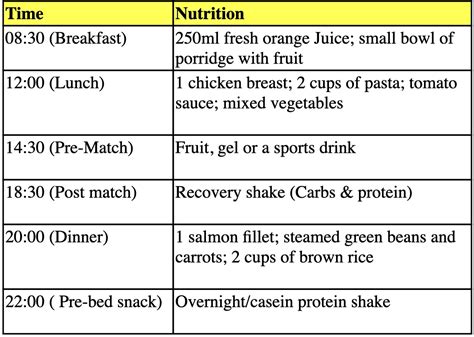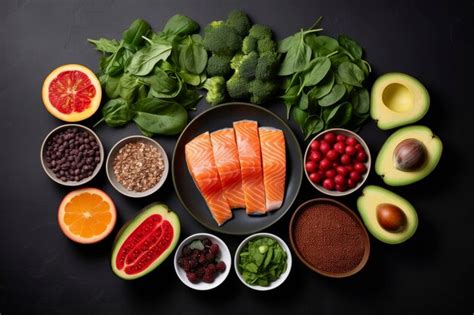Fueling peak performance: What nutrition maximizes energy, focus & recovery?

The Crucial Link Between Nutrition and Peak Performance
Whether you’re an athlete striving for personal bests, a student juggling deadlines, or a professional aiming for mental acuity, your diet is the fundamental bedrock of your performance. It’s not just about eating; it’s about strategic fueling to optimize every aspect of your physical and mental capabilities. Proper nutrition can be the game-changer, dictating your energy levels, cognitive function, and how quickly your body repairs and rebuilds.
Understanding which nutrients play what roles is key to crafting a diet that not only sustains you but propels you towards peak performance. This article delves into the specifics of what nutrition maximizes energy, sharpens focus, and accelerates recovery.

The Macronutrient Blueprint: Building Blocks of Energy and Repair
Macronutrients—carbohydrates, proteins, and fats—are the core components of our diet, providing the bulk of our energy and structural materials. Getting the right balance is paramount.
Carbohydrates: The Primary Fuel Source
Carbohydrates are your body’s preferred and most efficient source of energy. They are broken down into glucose, which fuels your brain, muscles, and organs. For sustained energy, focus on complex carbohydrates like whole grains, fruits, and vegetables. These provide a steady release of glucose, preventing energy crashes. Simple carbohydrates (sugars) are useful for quick energy bursts, particularly during or immediately after intense exercise for rapid glycogen replenishment.
Proteins: Repair, Recovery, and Growth
Proteins are essential for muscle repair, growth, and the production of enzymes and hormones. Adequate protein intake is critical for recovery after physical exertion, helping to rebuild damaged tissues and reduce soreness. Lean protein sources include chicken, fish, eggs, dairy, legumes, and nuts. Distributing protein intake throughout the day is more effective than consuming it all in one sitting.
Healthy Fats: Sustained Energy and Hormone Balance
Often misunderstood, healthy fats are vital for long-term energy, hormone production, nutrient absorption (especially fat-soluble vitamins A, D, E, K), and reducing inflammation. Sources like avocados, nuts, seeds, olive oil, and fatty fish (rich in omega-3s) should be incorporated into your diet. Fats provide a more sustained energy release compared to carbohydrates, making them important for endurance activities and overall bodily function.

Micronutrients & Hydration: The Unsung Heroes
While macronutrients provide the bulk, micronutrients (vitamins and minerals) and water are the catalysts that make everything work efficiently.
Vitamins and Minerals: Catalysts for Vital Functions
These tiny powerhouses play immense roles in energy metabolism, immune function, nerve transmission, and bone health. Key examples include B vitamins for energy production, iron for oxygen transport, magnesium for muscle function and relaxation, and vitamins C and D for immune support and bone health. A diverse diet rich in fruits, vegetables, and whole foods ensures a comprehensive intake of these crucial elements.
Hydration: The Foundation of Function
Water is often overlooked but is arguably the single most important nutrient. Even slight dehydration can significantly impair cognitive function, mood, energy levels, and physical performance. Aim to drink plenty of water throughout the day, increasing intake during exercise or hot weather. Electrolytes (sodium, potassium, magnesium) lost through sweat also need replenishment, especially during prolonged or intense activity.

Strategic Timing: When to Fuel for Optimal Results
It’s not just what you eat, but when you eat it, that can profoundly impact performance.
- Pre-Performance: Focus on easily digestible complex carbohydrates and a small amount of lean protein 2-4 hours before activity to top up energy stores. Avoid high-fat or high-fiber meals right before, which can cause digestive discomfort.
- During Performance: For prolonged activities (over 60-90 minutes), consuming simple carbohydrates (e.g., sports drinks, gels, fruit) can sustain energy levels and prevent fatigue.
- Post-Performance (Recovery Window): The 30-60 minutes immediately after intense activity is crucial for recovery. A combination of carbohydrates (to replenish glycogen stores) and protein (for muscle repair) is ideal. Think a fruit smoothie with protein powder, a chicken and rice meal, or yogurt with berries.

Beyond the Plate: Supplements and Individualization
While whole foods should always be the priority, certain supplements can complement a well-structured diet for some individuals. Creatine for strength and power, caffeine for focus and energy, and protein powder for convenient protein intake are common examples. However, supplements should always be used judiciously and ideally under guidance, as they are meant to supplement, not replace, a solid nutritional foundation.
Ultimately, the optimal diet for peak performance is highly individual. Factors like activity level, body composition goals, dietary preferences, and any underlying health conditions all play a role. Listening to your body, experimenting with different foods, and potentially consulting with a registered dietitian or sports nutritionist can help tailor a plan that works best for you.

Conclusion: A Holistic Approach to Sustained Excellence
Fueling peak performance is a continuous journey that requires a holistic approach to nutrition. By prioritizing a balanced intake of macronutrients, ensuring adequate micronutrient consumption, staying meticulously hydrated, and strategically timing your meals, you provide your body and mind with the essential tools they need to operate at their highest potential. Embrace nutrition as a powerful ally in your pursuit of energy, focus, and rapid recovery, and unlock a new level of performance in all aspects of your life.









